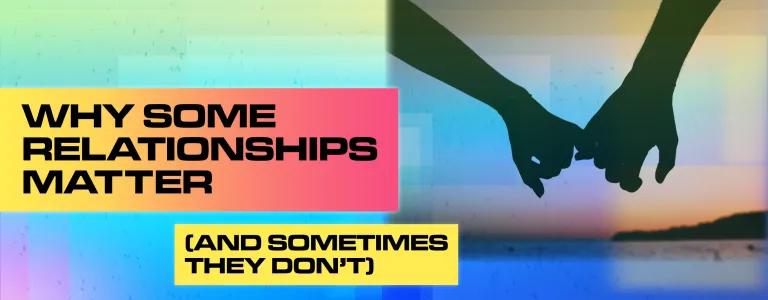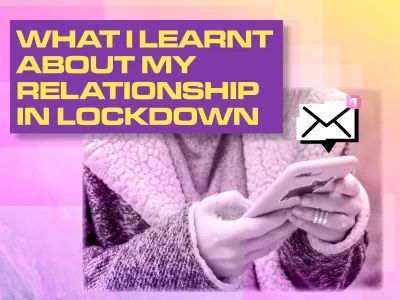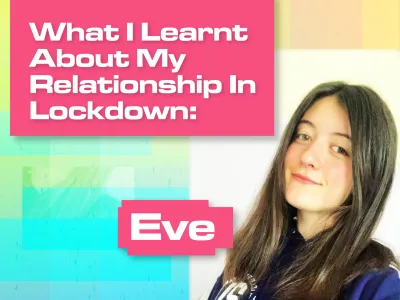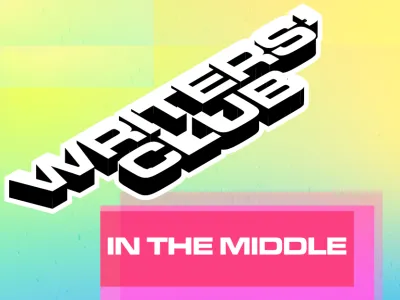
Why Some Relationships Matter (And Sometimes They Don't)
Include this article in your Skills Builder Journal. It could help you develop... 
Writers’ Club member Eve talks about lessons learnt from past relationships, and why sometimes they don’t always have to go the distance...
So you’re in a relationship. You got the guy or the girl and now you’ve got a label. Everything’s going well and you’ve made it a little way in. You’ve gotten past what society calls “The Honeymoon Period” and now it’s time to work out whether the feelings were just first-dates-electricity or real love. Now this is where one of two things happen: things go exceedingly well, you realise you click and that you can imagine a future (however long) together, or you realise you aren’t meant to be, this was a mistake and you should part ways.

Here’s the tricky part: sometimes differentiating these feelings from one another is more difficult than you may believe, especially when you’re young and naïve, and you don’t know what to do with them. Often, people stay in relationships due to confusion, not wanting to hurt their partner’s feelings or because they think that’s what you’re supposed to do. However, in the long term, this just leads to more heartbreak, upset and general emotional wreckage.
This can then become your idea of what love - and what heartbreak - is always like, especially if they were your first boyfriend or girlfriend. This can lead to future relationships having problems, especially if you jump straight into a new one. This can be catastrophic because you will then bring your baggage from your previous relationship into your new one, which can cause many issues. It can make you feel distant, isolated, or sad, and your new partner may struggle to help, or not be able to because you are shutting them out. Your new significant other could be the love of your life, the person you’re meant to spend the rest of your life with, your soulmate even, and you may never truly find out because you’re stuck focusing on all the bad memories and wasted time spent with your previous partner.

We need to stop this endless cycle of sadness, bad choices and confusion. By clearing our view of past relationships, it will prevent so much heartache, prevent so many problems and may even let us find the right person . Realistically, there’s always going to be heartache, there’s always going to be sadness, and there’s always going to be baggage when relationships end. But if we can sort out issues that could have been avoided by being decisive and ending things sooner rather than later, we can have more peace of mind and move on in a healthier way.
The other alternative, if you don’t think you’re ready to break up, is to communicate. Talk through the problems or doubts you’re having, because many problems can be solved by talking through them. This may not save your relationship (it might, but it might not), but it will give you peace of mind that you tried your hardest and said everything you could, and it will give you less issues when going into a new relationship. Without communication you just have two people existing in the same bubble but not doing much to make it work. This seems pointless seeing it written down, so it’s surely even more pointless in reality, isn’t it?

Ultimately, you can’t change the past, but you have to work through it, however difficult you may find it. You can look into what went wrong and work through your problems, your sadness, and your memories. It will be hard because you spent time with one person, you opened up to them, and you laid all your cards on the table. So yes, it will be hard, but you need to work through it to come out the other side stronger and better off because of it. A short period of pain is worth it for a lifetime of not carrying so much baggage around with you.
Dwelling on the past won’t fix your problems, building on your hardships (or smashing them to pieces and starting afresh with a new building) will make you better. Learn to compartmentalise your past relationships, taking the positive aspects and life lessons you’ve learned forwards into a new relationship. You and your partner (and future partners) will be better together because of it.




